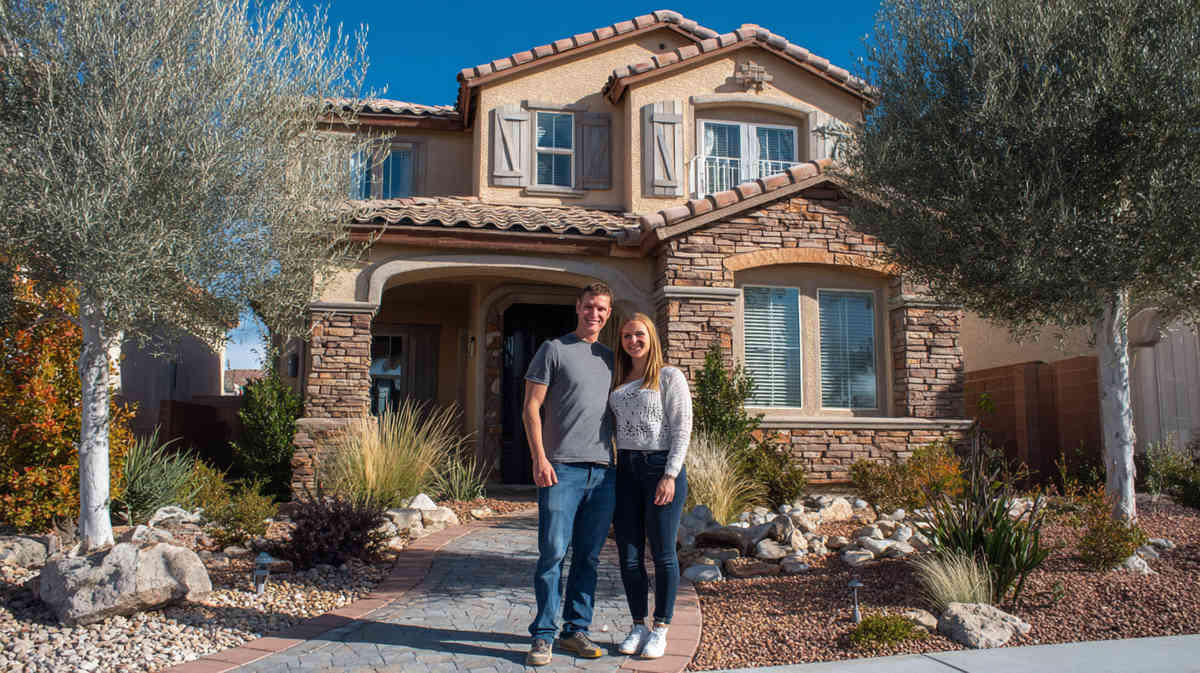You bought a place, painted the walls, wrestled with that desert landscaping, and now a new question keeps tapping on your shoulder. How long should you own a home before selling in North Las Vegas? The answer is not a single number written in concrete. It is a mix of math, market pulse, and your own life story. So, pull up a chair and let’s sort it out.
The Five-Year Rule, Unpacked
Real-estate folklore loves the Five-Year Rule. Hold the property for at least five years, the story goes, and you will build enough equity to offset closing costs and come out ahead. That guideline grew out of typical loan amortization schedules and average appreciation across the country. In many cities it still works. Mortgage interest dominates the first few years, while agent fees and transfer taxes wait for you on the exit ramp. Hang on long enough and rising values plus loan pay-down beat those expenses.
That is the math behind the myth.
Does North Las Vegas Obey That Rule?
Not always. This corner of the valley has seen price swings that laugh at national averages. During the last decade, median sale prices in North Las Vegas climbed roughly six percent per year, yet some pockets posted double-digit spikes between 2020 and 2022. When growth speeds up, the break-even period shrinks. In a surging market you might cover transaction costs in three years. Cool-downs can stretch the break-even closer to seven.
A second wild card is carrying cost. Insurance premiums, property taxes, HOA dues, and cooling bills all nibble at your equity. If those overhead items rise faster than your home’s value, extra time in the house will not help. In other words, check local numbers, not just the national sound bite.
What the Market is Doing Right Now
Current listings across North Las Vegas sit on the market about twenty-five days, down from thirty-eight a year ago. Active inventory remains tight, hovering near a two-month supply. Short supply tends to push prices upward and compress the break-even clock.
Look at appreciation. From January 2019 to January 2024, the median single-family home gained approximately twenty-eight percent. That is the big picture. Zoom into the last twelve months and growth cooled to about four percent. Still solid, just slower. If you bought in 2021 at the pandemic peak, your equity rise may be modest. Owners who grabbed property in 2018, on the other hand, have a deep cushion today.
Money Moves, Wallet Reality
The Dollars You Keep Versus the Dollars You Spend
Think of selling like running a relay race. Your baton handoff fees look something like this:
- Listing commission, often five to six percent split between buyer and seller agents.
- Title and escrow charges, about one percent.
- Seller concessions, maybe two percent if you sweeten the pot for the next buyer.
- Repairs and spruce-ups, which vary wildly.
- Potential capital-gains tax if you do not meet IRS ownership and use tests.
Add it up, and you could be staring at eight to ten percent of the sale price in direct costs. A three-hundred-thousand-dollar home might require twenty-four thousand in expenses on closing day. Those costs act like a hurdle. Your equity must clear the bar for you to walk away with profit and a smile.
Equity Growth in Real Time
Equity builds in two ways. Your mortgage balance falls each month, and the market adds value on top. For a typical thirty-year fixed loan at five percent interest, you pay down only about five percent of the principal in the first three years. Combine that with price appreciation, and the five-year guideline starts to make sense mathematically.
Still, run the actual numbers. If your neighborhood added fifteen percent in value during your first eighteen months, you may already be ahead of schedule. Online amortization charts and recent sales on your block reveal the truth quicker than any rule of thumb.
Life Happens, Plans Shift
Forget spreadsheets for a minute. Jobs change. Babies arrive. College beckons. Or maybe you discover that every weekend is consumed by yard work and you want a townhouse with zero grass. Personal milestones can matter more than profit margins. Here are moments that often nudge North Las Vegas owners into an early sale:
- Company promotion across the valley that makes your commute unbearable.
- A second child needing another bedroom.
- Older kids out of the house leaving too much unused space.
- Investment strategy pivot, such as redirecting equity toward a short-term rental opportunity elsewhere.
Your home is both a shelter and a financial tool. When life needs one more than the other, timing rules bend.
Running the Break-Even Calculation Yourself
Ready for a quick math sprint? Follow these five steps.
1. Pull your current loan payoff amount from the most recent statement.
1. Check the latest sold comps within a half mile and adjust for square footage differences.
2. Estimate total selling costs at eight to ten percent of the projected sale price.
3. Subtract loan payoff and selling costs from that price.
4. Compare the leftover equity with what you originally invested.
If the net figure meets your financial target, the calendar date is a formality. If it falls short, holding longer or renting the property out could be smarter.
Tip: Many owners forget to include interest saved by exiting early. A shorter loan life means less total interest paid, which boosts your overall return.
Taxes, the Sneaky Line Item
The IRS lets you shelter up to two-hundred-fifty-thousand dollars of gain if you file single and meet both the two-year ownership and two-year usage requirements within the last five. Married couples get five-hundred-thousand. Sell too soon and that shelter disappears.
Cap-gains taxes can slice as much as twenty percent off profits depending on income and how long you held the asset. For some, that tax bill is reason enough to stay put until the calendar is friendly.
Should You Ever Flip Out Early?
Short holds are not always reckless. Investors sometimes buy a tired property, renovate at lightning speed, and resell inside twelve months. They rely on forced appreciation, sweet construction budgets, and lower carrying costs. If you inherit similar skill sets and time capacity, early sales can still pencil out. Just price out everything. Materials, lender points, utilities during rehab, staging, and holding interest all pile up.
Four Clues the Time Might Be Right
- Equity equals or exceeds ten percent of the current value.
- Comparable homes within your zip code are going under contract in less than a month.
- Mortgage interest rates sit one to two points above your locked rate, nudging buyers who missed last year’s low-rate window.
- Your next move promises an even better return, perhaps a duplex that cash-flows or a larger property that fits a growing clan.
If three of those four hit green, pulling the trigger now could make solid sense.
What If You Wait?
Waiting can reward you with more principal pay-down and potential appreciation, yet risks exist.
- Market corrections do happen. If broader economic pressure forces prices down five percent, a two-year delay might erase equity gains.
- Rising interest rates can shrink the pool of qualified buyers, slowing your sale speed and possibly reducing offers.
- Wear and tear never rests. Roofs age, HVAC units wheeze, and cosmetic trends change. Deferred replacements may eat part of tomorrow’s profit.
Holding is not free. Balance patience with opportunity cost.
Quick Snapshot of Typical Hold Durations in the Valley
Research from the National Association of Realtors shows that owners across Nevada keep a primary residence about nine years on average. In North Las Vegas the median hold is slightly shorter, roughly seven years. A younger population base, solid job growth, and comparatively affordable new construction elsewhere in the valley push folks to move a bit sooner.
Remember, averages mask extremes. Homeowners who bought after the 2008 downturn often stayed far longer, riding the recovery wave. Pandemic-era buyers might choose shorter stays, especially if remote work unlocks new locations.
Action Plan if You Think a Sale Is Brewing
1. Order a preliminary title report to catch liens early.
1. Schedule a lender payoff quote dated for a hypothetical closing sixty days out.
2. Walk through the house with a stager who knows the North Las Vegas buyer profile.
3. Interview agents and ask for a net sheet, not just a price opinion.
4. Review the two-year ownership and usage tests for capital-gains treatment.
Each step brings clarity. With real numbers on paper you will see whether an immediate listing, a six-month polish, or a multi-year hold serves you best.
The Bottom Line
So, how long should you own a home before selling North Las Vegas? Long enough to beat transaction costs, ideally long enough to satisfy IRS gain exemptions, and just short enough that life goals do not stall. For many locals that sweet spot lands around the five-year mark, yet soaring appreciation or personal upheaval can shorten the timeline.
Run your break-even math, scan neighborhood comps, and weigh the human side of the decision. When numbers and lifestyle align, give your agent the green light and start packing those moving boxes with confidence.













